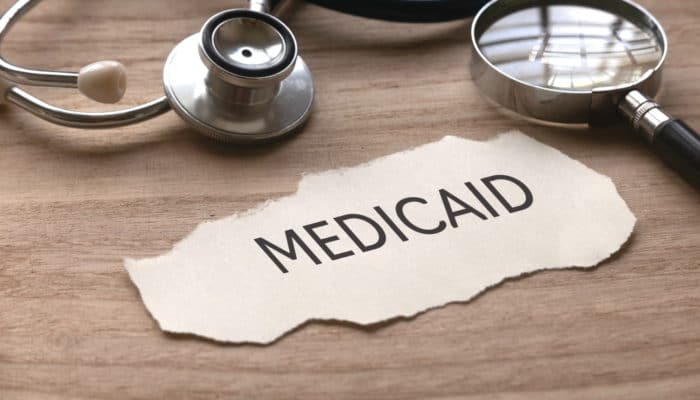(A Quick Review)
Florida has a 60-month Medicaid Look-Back Period that immediately precedes one’s Medicaid application date. During this timeframe, Medicaid checks to ensure no assets were gifted or sold under fair market value.
To qualify for long-term Medicaid in Florida, such as nursing home or assisted living care, the applicant must not have given away assets within 5 years of applying for Medicaid benefits. Any gifts or transfers of assets made greater than 5 years of the date of application are not subject to penalties.
Medicaid services in Florida are administered by the Agency for Health Care Administration. Medicaid eligibility in Florida is determined either by the Department of Children and Families (DCF) or the Social Security Administration (for SSI recipients).
In Florida, Medicaid can be used to pay for an elderly relative’s nursing home, assisted living facility, or in-home nursing care. Medicaid pays a fixed daily rate to cover costs such as a patient’s room, meals, staff care, and medical supplies, for the remainder of their life.
In Florida, most Medicaid recipients are enrolled in the Statewide Medicaid Managed Care program. The program has three parts: Managed Medical Assistance, Long-Term Care, and Dental.
The most popular question that arises is -can Florida Medicaid (or AHCA) take one’s house? The basic answer is “no.” If one dies and their home goes to their heirs-at-law (i.e., family members) then the state of Florida cannot take their homestead real property. HOWEVER, Florida Medicaid does have a pay-back provision, just like all states. During one’s lifetime, if they received Medicaid benefits and if they die after age 55, the State of Florida is a creditor in their probate estate.
One of the other biggest concerns is often, “Will the nursing home take my house?” The short answer is no. A nursing home does not take houses. However, there are circumstances where selling the house may be the only way to get the funds to pay for the care that is needed.
Since Medicaid is a needs-based program, this 5-year rule is designed to ensure that applicants need government assistance and did not just position themselves to receive Medicaid benefits just before applying.
To qualify, a single individual over the age of 65 (or disabled), who needs home-health aide, assisted living facility or skilled nursing home Medicaid benefits, he or she can have no more than $2,000.00 in what are considered countable assets for Medicaid.
Exempted assets include personal belongings, household furnishings, an automobile, irrevocable burial trusts, IRAs in payout status, and one’s primary home or residence. For home exemption, the Medicaid applicant must live in it or have the intent to return, and in 2022, have a home equity interest no greater than $636,000.
Effective January 1, 2022, the applicant’s gross monthly income may not exceed $2,523.00 (up from $2,382.00). The applicant may keep $130 per month for personal expenses. However, even having excess income is not necessarily a deal-breaker in terms of Medicaid eligibility.
The most common example of a non-exempt transfer is a gift of an asset to a friend or family member within the prior 60 months of applying for Medicaid benefits.
If an applicant is found to have made a non-exempt transfer during the previously mentioned look-back period, the State of Florida will impose a penalty of ineligibility based on the amount of money that was transferred away.
The length of the penalty of ineligibility is calculated by dividing the amount of money that was given away by the average monthly private-pay nursing home facility cost.
Therefore, to protect a prospective applicant’s assets legally and ethically before the look-back period, an individual must ensure their estate plan is in order and create an Irrevocable Trust for Medicaid purposes, which if done properly, allows protection for both principal and income while allowing the applicant to still qualify for Medicaid long-term care. Several ways to protect money from Medicaid include, but are not limited to, an Asset protection trust, in that Asset protection trusts are set up to protect wealth, Income trusts, Promissory notes and private annuities, Caregiver Agreements or Personal Service Contracts and Spousal transfers, among others.
Assets are not protected from Medicaid in a Revocable Trust because a person retains control of them. The primary benefit of a Revocable Trust is that one can name a beneficiary who will receive payouts from the trust after death without the need of a probate proceeding.
If one is healthy and not looking to receive long-term care in the immediate future, there are several steps that can be taken to better prepare for future needs. Once again, ensure that an estate plan is in order and that a Will and/or Trust is up to date. Further, other needed documents include a valid Durable Power of Attorney (for financial matters), Healthcare Surrogate (medical power of attorney) and Living Will/Advance Directive. An individual can also create an Irrevocable Trust for Medicaid purposes, which if done properly, allows for the protection of both principal and income while allowing the applicant to still qualify for Medicaid long-term care. An individual can obtain long-term care insurance coverage as well. Some private insurance carriers provide options for this type of insurance, but the applicant typically must be healthy at the time of purchase for them to be covered. Financial advisers recommend the optimal age to inquire about a long-term care policy, assuming one is still in good health and eligible for coverage, is between 60 and 65. Couples might consider looking into it 5 years earlier.
The foregoing is just a brief overview or review of the subject described.
If you should have any additional questions or would like to discuss your situation, concerns, and needs, please call an Attorney at CASERTA & SPIRITI.

